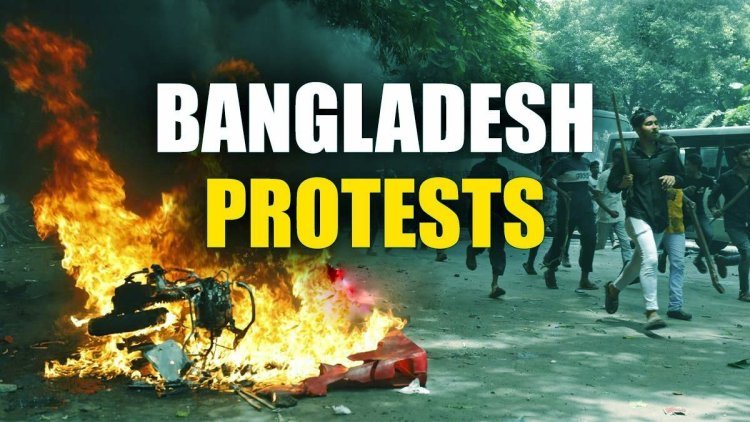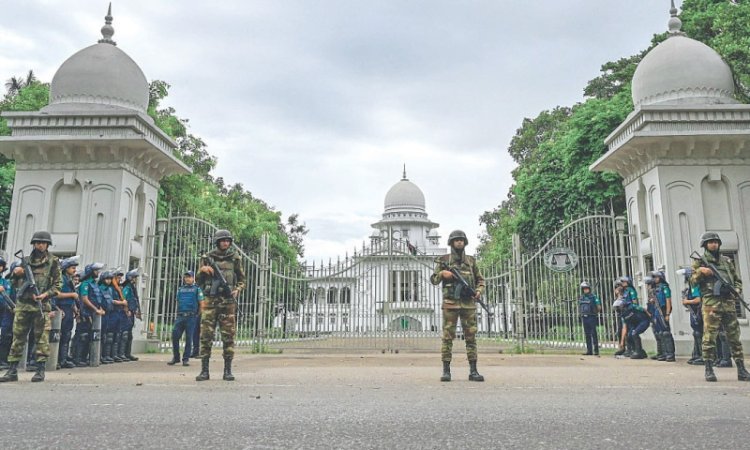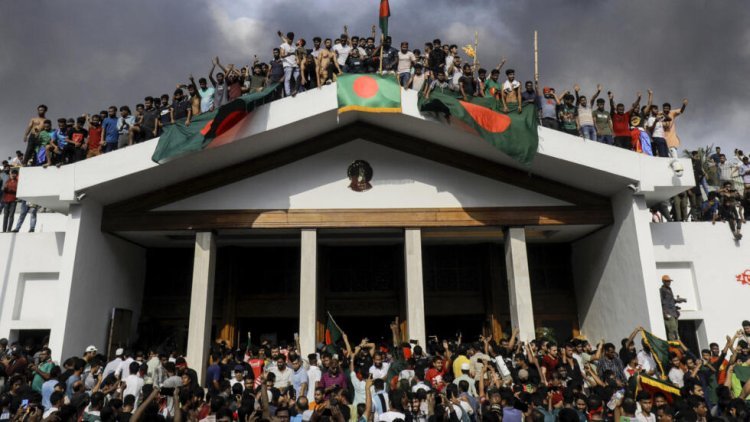Bangladesh Protest: Mohammad Yunus is making a new plan for power, what has happened from the overnight coup till now?
Bangladesh Protest: The spark that arose from the issue of reservation led to a coup in Bangladesh. Former Prime Minister Sheikh Hasina had to leave her country and come to India. Sheikh Hasina left for India and within a few minutes a crowd of protesters entered the Prime Minister's residence. The situation became such that Sheikh Hasina had to resign. After leaving the country, the army announced the formation of an interim government in the neighboring country.

INTRO
- Bangladesh Prime Minister Sheikh Hasina resigns
- Sheikh Hasina reaches India after the coup
Bangladesh Unrest: On August 5, such a picture of Bangladesh came out which no one could have imagined. After the coup, former Prime Minister Sheikh Hasina had to resign leave her country and take refuge in New Delhi, India. Let us tell you that about 300 people were killed in clashes between protesters and police. Amidst bloody violence, Army Chief General Waqar-uz-Zaman announced an interim government.
Let us tell you that these protests started over a controversial job quota system. So let's know what happened in Bangladesh between July and August? Let's take a look at the timeline...
2 July: Protests erupt in Dhaka, the capital of Bangladesh, demanding the abolition of the quota system in civil service recruitment, which reserves 56% of jobs for certain categories of people. Students say this is discriminatory.
10-12 July: Students stage sit-in protests on the streets of Dhaka and highways outside the city, causing complete traffic disruption.

14 July: Prime Minister Sheikh Hasina criticized the students' demand to abolish quotas for children and grandchildren of war veterans. Students expressed their displeasure.
15 July: BCL activists attacked anti-quota students at Dhaka University and Dhaka Medical College Hospital. More than 300 people were injured in the clashes.
16 July: Clashes spread further, and at least six people were killed in Dhaka, Chittagong, and Rangpur in the north. Ordinary students retaliated, drove the BCL group out of Dhaka and Rajshahi universities and vandalized the rooms of their leaders on university campuses.
17 July: Hasina addressed the nation on television, expressing grief over the deaths and announcing that she would set up a judicial inquiry to hold the perpetrators accountable. In the case of Kota, she urged students to wait for the Supreme Court's decision.
21 July: The Supreme Court delivers its verdict in the quota case, abolishing most quotas for civil service jobs and leaving 93% of the places for general applicants. However, the curfew continues even after this and seven more people are killed.
3 August: Student organizers demand 'Hasina resign' at a large rally in Dhaka. Hasina offers talks but the students reject it.
4 August: Widespread clashes break out in Dhaka and at least 21 districts across the country. At least 90 people were killed in the violence, according to media reports. The dead include 13 policemen who were beaten to death by a mob in Sirajganj. The government reimposes an indefinite curfews across the country.
Students announce a march from all parts of the country to Dhaka with the aim of forcing the government to resign. The army and police urge people not to break the curfew or violate the law.
5 August: Thousands of people from Dhaka and its surrounding areas violated the curfew and gathered in the centre of Dhaka. The army initially tried to stop the people, but the people's anger was too much. The crowd attacked Hasina's official residence.

What now in Bangladesh after August 5?
By the afternoon of August 5, Hasina had submitted her resignation to President Mohammad Shahabuddin and flew to neighboring India with her sister Sheikh Rehana. Army Chief General Waqar-uz-Zaman invited several political parties for talks, including Jamaat-e-Islami, which the government had banned a few days earlier. The general said an interim government would be formed after consulting the president.
The army chief promised justice for the 300 people killed during 20 days of violent protests, but mobs attacked several offices of the outgoing ruling party as well as a museum dedicated to Hasina's father Sheikh Mujibur Rahman, the country's founding father.
'Yunus' visit to temple
Today, i.e. on Tuesday, Bangladesh Chief Advisor Muhammad Yunus visited the Dhakeshwari Temple in Dhaka. Here he met members of the Hindu community.
During the meeting, he urged Hindus to 'have patience' before deciding on the new interim government.
Meanwhile, the interim government urged people to provide information about attacks on Hindu temples, churches and other religious institutions.
According to news agency PTI, this step has been taken amid reports of vandalism in religious places, businesses and properties of minority communities.













